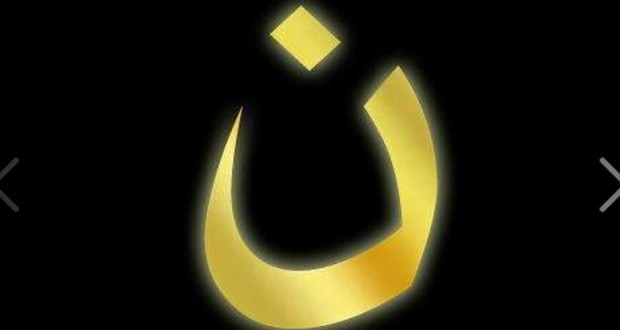By Dr Dwayne Ryan Menezes, Director, and Paul Adams, Guest Contributor 16th August, 2014, Religion and Politics, Issue 3, No. 1
The HSC’s Director for Government Relations and Strategic Partnerships, Dr Dwayne Ryan Menezes, writes for Ethics, Culture & Politics.
By Paul Adams
Can Christians ever be victims of genocide? asks Professor Mark Movesesian over at First Things magazine. Not only President Obama and his people, but also Condoleeza Rice and policy elites more widely seem to have a blind spot when it comes to the world’s most persecuted major religion. Nina Shea of the Hudson Institute reported that Rice’s response to her attempts to draw the attention of the Bush Administration to the plight of Iraq’s Christians was that assistance to Christians by the United States would appear sectarian. Britain’s failure to defend the persecuted Christians in the Middle East has also been shameful.
When I posted a link to Movesesian’s article on my Facebook page, my friend Dwayne Ryan Menezes, who is a director of the new London think tank, Human Security Centre and Head of its Religion and Politics division, responded with this deeply moving and personal comment. Dr. Menezes’ research interests are in Christianity in the non-Western world and Christians from the non-Western world in the West. Here he tells a story, too little understood in the West, about the meaning for Christians in many lands beyond the West of the embarrassed silence of Christians in face of anti-Christian persecution. It is a hostile, politically correct multiculturalism that is as insensitive as possible to persecuted minorities where these do not fit the dominant narrative. This postmodern secularist pose of Western elites approves of every culture but its own, and values, in the name of diversity, every religion except those at the heart of its own culture and civilization, Christianity and Judaism. What Dwayne experienced in India, where he was born into a Catholic family of Indo-Portuguese descent, was rejection as a living reminder of empire, an attitude mirrored in the post-Christian, anti-Christian West, where he and others like him saw no support. “All we saw was the post-Christian garb of the West, a cultural hemisphere where Christians had been crushed into silence, embarrassment or apathy.”
By Dr Dwayne Ryan Menezes
The fear of ‘appearing sectarian’ or ‘showing favouritism’ is the poorest, the weakest and the most appalling excuse for not speaking up for a persecuted group in a distant land that happen to share your beliefs.
During the wave of intensified persecution of Christians in India in 2008, I had to head to Ottawa and Washington to get people to even listen to my concerns. It was only later – once the overseas Indian Christian diaspora was mobilised into action – that the West took some notice.
I shall never forget how despondent and frustrated I used to feel as the sole Christian in my school in India for 10 years. Throughout my childhood, you were accepted, but only to a point, and only so long as you surrendered to the expectations of the majority on the minority.
I shall never forget how it felt to be treated as an alien in one’s own land, where I was expected to defend everything the West did as if being Christian made me its Ambassador, all while the same West appeared so removed from my plight, so beyond my reach, and so embarrassed and reluctant to come to my defence.
I will never forget the year 1999. I was 14 when the Australian missionary Graham Staines and his two boys were burned alive by a mob of 50 or so in Manoharpur, Orissa, while they were sleeping in their vehicle. His two boys – Philip (10) and Timothy (6) – were only a few years younger than me. I saw them in my dreams that night, their little hands tapping the window of their locked vehicle, summoning me to do something.
I remember the pain and confusion I felt in my 14-year-old heart when I saw people celebrating their demise and warning other Christians that the same fate would befall them. I remember some of my best friends remarking scornfully the next day, “You’ve still gone back to school? Haven’t you learnt a lesson? Why don’t you go back to Rome or London or Lisbon, wherever it is that you come from?”
I would have left, had I happened to have come from any of those places, but what could I do as one born into a Roman Catholic family in India of Indo-Portuguese descent? The West didn’t want me, if at all they knew “my kind” existed. The Indians didn’t want me, for they saw “my kind”, quite literally, as the last, but living, vestiges of the empire. There I was: an alien in every land, a stranger to every people.
Perhaps there were people (like yourself) and organisations (like Christian Solidarity Worldwide) then who did indeed stand up for Christians like me, but how was I – a child born in distant India – supposed to know? All we saw was the post-Christian garb of the West, a cultural hemisphere where Christians had been crushed into silence, embarrassment or apathy.
If you are born a Muslim in India, you can at least tap into some sort of transnational Muslim community that is visibly and vocally attentive to your concerns. If someone in Denmark publishes a cartoon that Muslims find offensive, Muslims in lands as far as India will rise up in uproar. There is a sense of collective honour and collective responsibility, at least within some transnational sectarian communities.
We must not stigmatise Muslims for their transnational and trans-ethnic solidarity; we must learn from their example. We must put Christian teachings into practice, see (and not just call) ourselves a global ‘community of the faithful’, have a sense of transnational solidarity and responsibility, and set a ‘Christian’ example of how to respond to the challenges the most vulnerable among us face: a response borne in dignity, peace, love and humility.
Dr Dwayne Ryan Menezes is contactable at: dwayne.menezes@hscentre.org
Please cite this article as:
Menezes, D. (2014) “Aliens in Our Own Land: Persecution of Christians and Western Indifference”, Human Security Centre, Issue 3, No.1
 Human Security Centre Human Rights and International Security Research
Human Security Centre Human Rights and International Security Research




